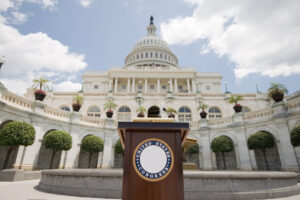What to avoid when speaking to reporters
If you say something to a journalist, it’s likely to find the light of day. Proceed accordingly.

Prior to becoming a PR practitioner, I was a journalist for a number of years. As a journalist, as soon as someone would say to me, “this is off the record,” I would reply, “If you tell it to me, it’s on the record.” In most cases, that would end the conversation.
As a PR pro, one of the first rules I insisted account people reporting to me follow was to never have “off-the-record” conversations with journalists. There is no guarantee that “off-the-record” conversations will remain sacrosanct because often future circumstances will force journalists to break their commitments.
Here is the advice I give to clients before the interview begins:
- Even though a journalist agrees to your off-the-record request, information provided may unintentionally pave the way for ancillary stories not covered by the agreement.
- Circumstances change and a reporter might not be able to honor an “off-the-record” agreement because of breaking news.
- Reporters have a job to do. That is to report, not protect a client.
- Just because a client (or PR person) says something is “off-the-record” doesn’t mean the reporter agrees. The ethical reporter will make it clear if they will honor “off-the-record” information when it is offered, but some reporters might say nothing and use the information with attribution, others without attribution.
- A reporter honoring “off-the-record” comments may tie the hands of the PR agency from releasing the information in the most advantageous way for the client. (Remember, not all “off-the-record” remarks are negative. You or the client might eventually decide it’s best to go “on the record” with another more prestigious news venue but feel obligated to the first reporter.)
Though it is important to remind clients that anything they say to a reporter can be used in a story, it is equally important for the PR person attending the interview to do the following:
- The PR person should caution the client that just because the reporter turns off the tape recorder or puts away a notebook does not mean that the interview is over. The client should be warned that any remarks on the way to the elevator or washroom can still be used by the reporter.
- When arranging the interview, and again before the start of the interview, the PR person should provide the interviewer with list of key client message points crafted in a newsworthy manner.
- At the conclusion of the interview, if the client has not touched on all the message points, which is the case in the majority of interviews, the PR person should ask the reporter if the client can make a closing statement. This in-the-pocket statement should have been prepared prior to the interview and contain message points, augmented with information not previously spoken by the client. Providing statistics and future plans that back up the statements should suffice.
- Also, at the conclusion of the interview, the PR person should ask if it is possible for the reporter to include some message points in the story. Sometime a friendly reporter will do so. Some will not. Some will say, “I’ll try,” without meaning it, but asking will show the client that you’re doing your job.
- The PR pro accompanying the client must be fully immersed in the subject of the interview, so that any misstatements by the client can be immediately corrected.
There are also important actions that should be followed immediately after the interview:
- After the interview, the PR person should always immediately follow up with an “I thought this might be a helpful” email or text to the reporter, including a synopsis of what was said during the interview. This serves two purposes: Doing so will make a reporter think twice about reporting what was said out of context and it will also emphasize what the client considers the most important facts. It should also include one or two new short quotes from the client.
- The account person should provide all members of the agency team involved with the client with the synopsis and also send it to the client’s in-house PR and, depending on the subject, marketing and corporate teams.
- The agency pro who accompanied the client to the interview should provide an immediate short critique of the interview to better prepare the client for future interviews. A more detailed critique should be sent to the client during the same week as the interview.
Prior to the beginning of an interview, I had some credit card-size laminated interview rules that I would hand to the client.
It said:
- “Don’t lie.”
- “Don’t assume.”
- “Don’t exaggerate.”
- “If you don’t have the facts necessary to answer a question, tell the reporter you’ll get them.”
- “Don’t say anything that you don’t want to see in a story, because saying this is ‘off-the-record’ doesn’t guarantee that it will be.”
Arthur Solomon, a former journalist, was a senior VP/senior counselor at Burson-Marsteller. He can be reached at arthursolomon4pr (at) juno.com.






